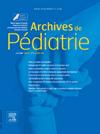Care for newborns and its diverse meanings
IF 1.3
4区 医学
Q3 PEDIATRICS
引用次数: 0
Abstract
The arrival of a newborn in a family brings with it many worries, together with baby-related tasks to keep family members busy, and sometimes paradoxically withdrawal. Funding from UNICEF enabled us to conduct an original anthropological study in five countries of sub-Saharan Africa (Benin, Burkina Faso, Mali, Mauritania, Togo), studying newborn care from birth to the seventh day of life. We focused on the various kinds of care provided to these babies and on their diverse meanings. We examined how the social status of newborns induced forms of care and of interpretations of particular disorders. This work shows that the conceptions of the newborn: vulnerable beings of uncertain social integration – engendered less investment by health care professionals at birth, but inversely, strong mobilization by members of the extended family. Despite the generalization of hospital births, care during the first days of life remained associated with the domestic household universe and was barely if at all medicalized. The heterogeneous integration of medical recommendations for newborn care in the first days of life can be analyzed as arising from divergent intentions around the birth and the reception of the newborn. This study also examined how changes in neonatal care may generate conflicts of influence and intrafamily power struggles and thus allowed us to explain how the adoption of some recommended neonatal care was compromised and how they need to be adapted locally. It thus showed how some changes in neonatal care helped to bring about the reexamination of family roles. This will lead us to discuss how to define "respectful care" for these subjects who cannot speak. Beyond quality of care based on good practice guidelines, it is important to underline how respect in the care relationship is indissociable from the local cultural construction of newborns.
新生儿护理及其不同含义。
新生儿的到来给家庭带来了许多烦恼,与婴儿相关的工作也让家庭成员忙得不可开交,有时甚至会出现自暴自弃的情况。在联合国儿童基金会的资助下,我们在撒哈拉以南非洲的五个国家(贝宁、布基纳法索、马里、毛里塔尼亚和多哥)开展了一项原创人类学研究,研究新生儿从出生到出生后第七天的护理问题。我们重点关注为这些婴儿提供的各种护理及其不同的含义。我们研究了新生儿的社会地位如何诱发护理形式以及对特定疾病的解释。这项研究表明,新生儿的概念:不确定社会融合的脆弱生命--导致医护人员在新生儿出生时投入较少,但与之相反的是,大家庭成员的积极性却很高。尽管住院分娩已成为普遍现象,但新生儿出生后最初几天的护理仍与家庭有关,几乎没有医疗化。对新生儿出生后最初几天的医疗建议的不同整合,可以分析为围绕新生儿出生和接收的不同意图。这项研究还探讨了新生儿护理的变化如何可能产生影响力冲突和家庭内部的权力斗争,从而使我们能够解释一些新生儿护理建议的采用如何受到影响,以及如何需要在当地进行调整。由此可见,新生儿护理方面的一些变化如何有助于重新审视家庭角色。这将引导我们讨论如何为这些不能说话的对象定义 "尊重的护理"。除了以良好实践指南为基础的护理质量外,强调护理关系中的尊重与当地新生儿文化建设是不可分割的,也是非常重要的。
本文章由计算机程序翻译,如有差异,请以英文原文为准。
求助全文
约1分钟内获得全文
求助全文
来源期刊

Archives De Pediatrie
医学-小儿科
CiteScore
2.80
自引率
5.60%
发文量
106
审稿时长
24.1 weeks
期刊介绍:
Archives de Pédiatrie publishes in English original Research papers, Review articles, Short communications, Practice guidelines, Editorials and Letters in all fields relevant to pediatrics.
Eight issues of Archives de Pédiatrie are released annually, as well as supplementary and special editions to complete these regular issues.
All manuscripts submitted to the journal are subjected to peer review by international experts, and must:
Be written in excellent English, clear and easy to understand, precise and concise;
Bring new, interesting, valid information - and improve clinical care or guide future research;
Be solely the work of the author(s) stated;
Not have been previously published elsewhere and not be under consideration by another journal;
Be in accordance with the journal''s Guide for Authors'' instructions: manuscripts that fail to comply with these rules may be returned to the authors without being reviewed.
Under no circumstances does the journal guarantee publication before the editorial board makes its final decision.
Archives de Pédiatrie is the official publication of the French Society of Pediatrics.
 求助内容:
求助内容: 应助结果提醒方式:
应助结果提醒方式:


